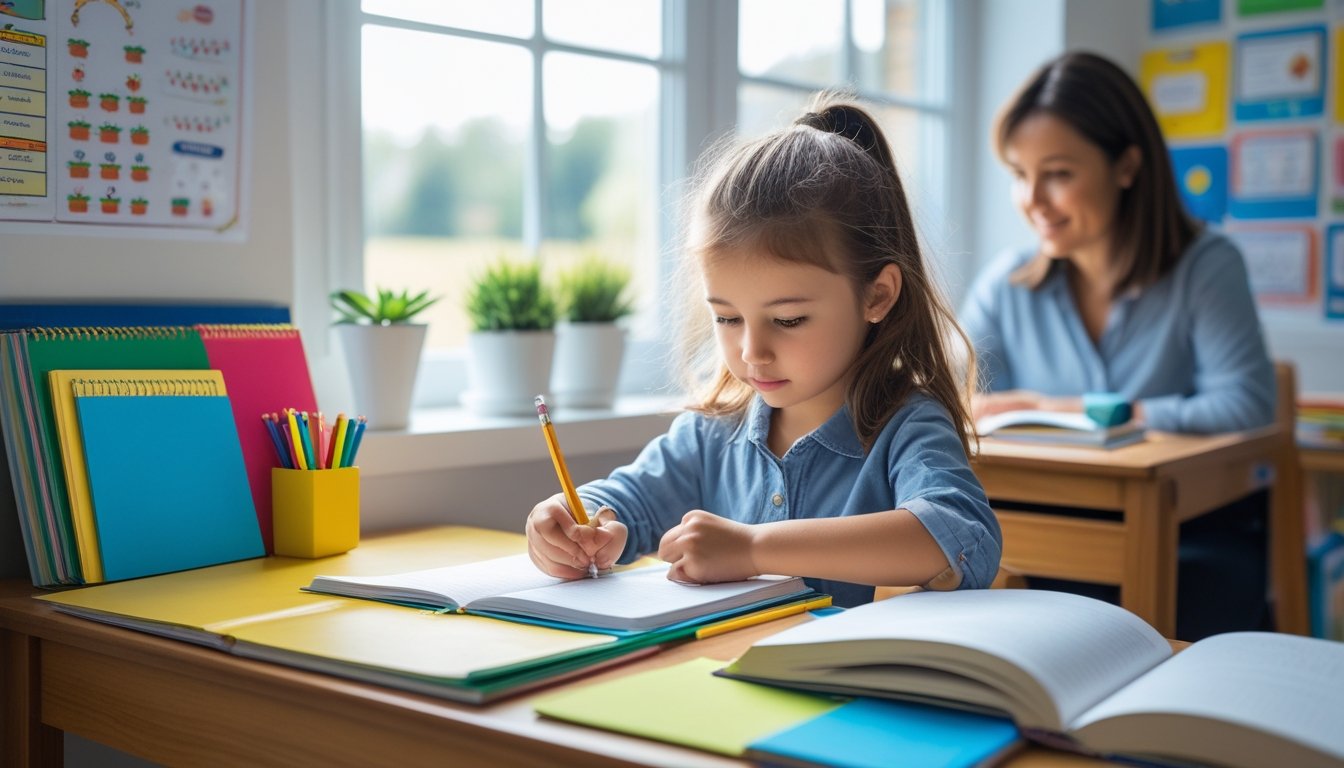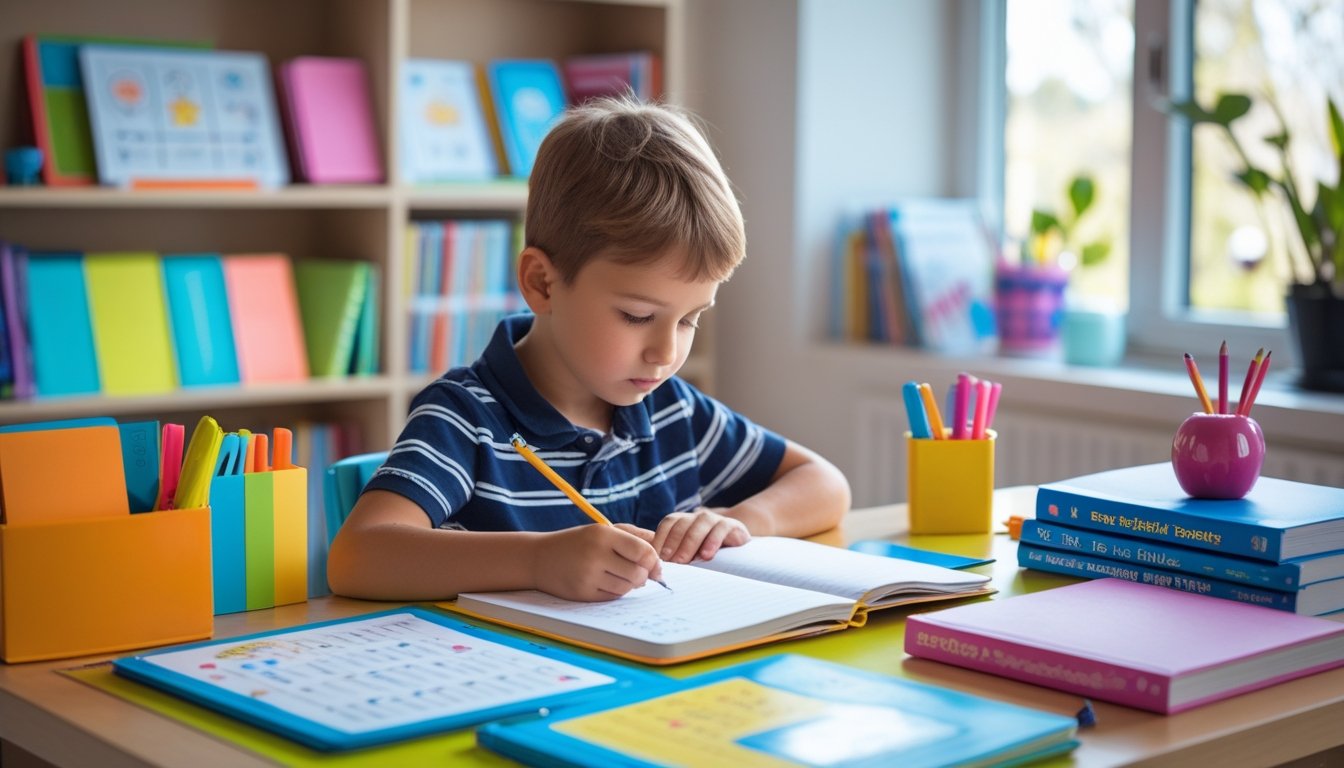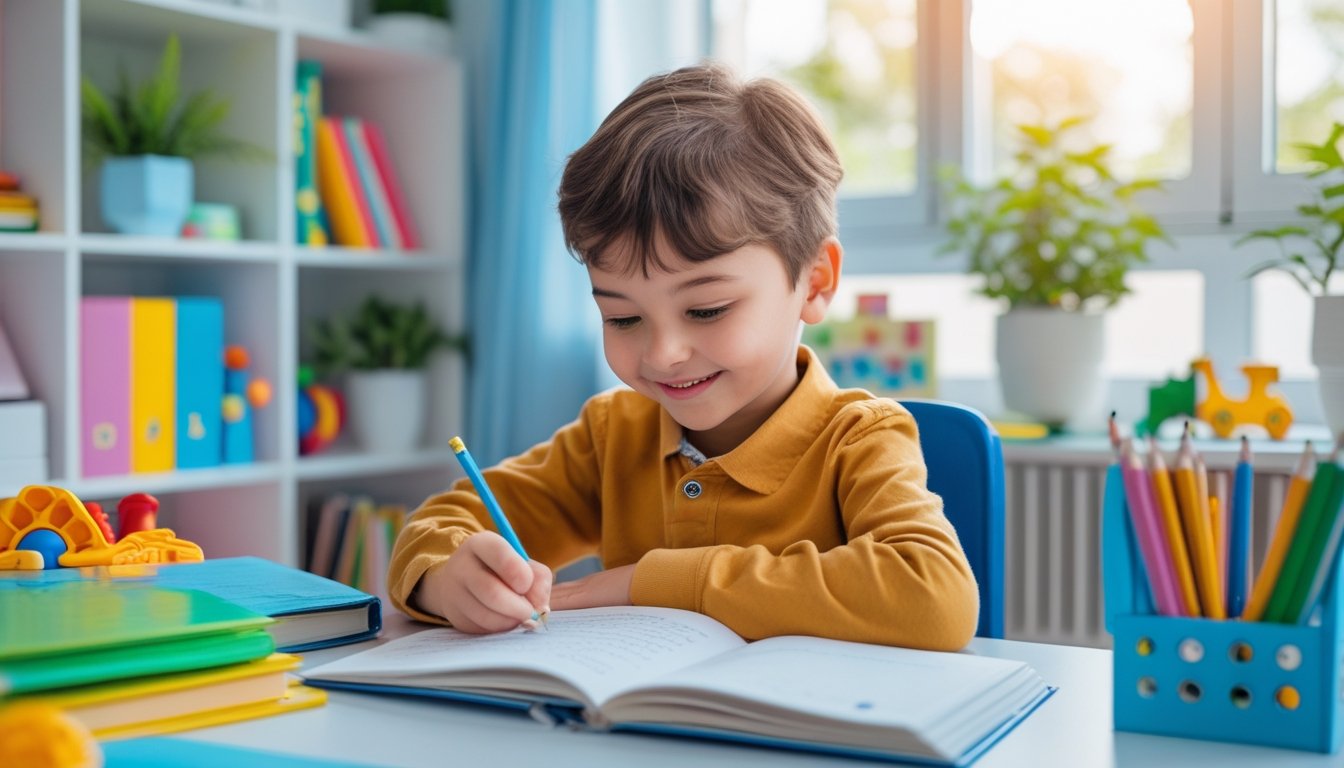Late updated: 23 Jun 2025 15:06
Written by:
Developing Effective Study Habits For Children: Strategies for Success
Effective study habits are the cornerstones of academic success for children. They're not just routines but vital skills that enable children to manage their time efficiently, develop self-discipline, and handle challenges with confidence. Our role, as parents and educators, is to empower children by teaching them how to cultivate these study habits, boosting both their performance and confidence in school.

As children grow, especially between the ages of 6 to 12, developing strong study habits becomes crucial. This period is an opportunity to instill lasting skills that greatly enhance a child’s learning journey. It isn't just about completing homework but fostering a love for learning and an understanding of how to approach educational challenges.
In this blog, we will explore strategies and techniques to enhance children's study skills, answering common questions and providing insights into best practices. By equipping children with these essential skills, we prepare them to thrive not only in school but in all aspects of life.
Key Takeaways
- Effective study habits boost academic success and confidence.
- Strategies are discussed to enhance learning and handle challenges.
- Early development of study skills fosters lifelong learning habits.
Fundamental Principles of Effective Study Habits for Children
To cultivate effective study habits in children, we need to focus on understanding their unique learning styles, establishing a consistent study routine, creating a conducive study environment, and promoting focus while minimising distractions. These core principles lay the groundwork for postive lifelong learning experiences.
Understanding Learning Styles
Children process information differently. Identifying these unique learning styles is key to establishing effective study habits. Some children are visual learners, thriving on diagrams and pictures, while others may be auditory learners, absorbing information best when it's heard.
Incorporating various methods like interactive activities, discussions, and reflective practices can cater to different styles, ensuring that each child’s needs are met. Ultimately, when we tailor our approach, children become more engaged and confident in their ability to learn.
Establishing a Consistent Study Routine
A consistent routine is critical in building effective study habits for kids. Regular study times help children develop a strong work ethic. By setting specific times for studying each day, children learn to manage their time better and make studying a priority.
A clear and predictable schedule reduces anxiety and sets expectations. Visual planners or calendars can be useful tools for this purpose. Knowing what to expect allows children to mentally prepare, fostering not only academic success but essential life skills as well.
Creating a Conducive Study Environment
The right environment greatly influences study habits. A dedicated, organised study space free from distractions supports concentration and motivation. This space should be free from clutter, with all necessary materials within easy reach.
Lighting and seating should be comfortable yet supportive to maintain focus. A quiet and supportive environment encourages engagement and makes study sessions more productive. Ultimately, a conducive study environment will invite children to value and prioritise their educational activities.
Promoting Focus and Minimising Distractions
Achieving focus requires minimising distractions, a crucial element for effective study habits. Noise, screens, and clutter are common barriers that can detract from concentration. Reducing these factors helps maintain focus and maximises study time efficacy.
We can promote engagement by setting goals and breaks, allowing children to manage their time better and avoid fatigue. Techniques such as the Pomodoro technique, which involves work and rest intervals, can be highly beneficial. Creating a balance ensures that children remain attentive and motivated in their study pursuits.
Strategies and Techniques to Enhance Study Skills

In order to cultivate effective study habits for children, it is essential to focus on time management, active learning techniques, and fostering motivation and discipline. These elements together contribute to creating a positive learning environment and improving academic performance.
Time Management and Study Scheduling
Effective study skills start with well-structured time management. We can guide children to use planners and calendars to map out their study schedule clearly. By doing this, they can prioritise tasks and allocate sufficient time to each subject. Using tools like educational apps can aid in keeping track of assignments and deadlines.
Introducing the Pomodoro Technique, which involves studying in short, focused bursts with regular breaks, can prevent procrastination and maintain productivity. Breaking study time into manageable chunks makes tasks less daunting, thereby improving focus and efficiency. Encouraging the habit of setting specific and achievable goals enhances a child's sense of accomplishment, fostering a more organised approach to learning.
Active Learning Techniques for Retention
To increase engagement and memory retention, we should incorporate active learning strategies. Techniques such as note-taking, creating flashcards, and conducting practice tests are instrumental in enhancing critical thinking and understanding. Visual aids like charts and diagrams are practical tools for reinforcing concepts.
Another effective approach is using mnemonic devices to help with memorisation, making it easier for children to recall information. By consistently applying these techniques, students can strengthen their long-term retention and recall skills. Promoting an interactive learning environment can stimulate curiosity and boost a positive attitude towards learning, contributing to lifelong learning habits.
Motivation, Discipline, and Positive Reinforcement
Motivation and discipline are vital components of developing effective study habits. We must encourage children to set specific goals that align with their academic aspirations. Positive reinforcement, such as praise or rewards for effort and progress, can significantly enhance motivation. This helps in building self-discipline and a sustained focus on studies.
Creating a conducive learning environment that minimises distractions further supports disciplined study habits. Encouraging regular physical activity can also play a role in maintaining energy and concentration levels. This balanced approach fosters personal development, preparing children for future success as confident, self-disciplined learners.
Frequently Asked Questions

Addressing specific concerns about children's study habits can empower parents and educators to support students effectively. Our insights focus on practical strategies, essential skills, and the importance of creating a conducive study environment.
What strategies can parents employ to foster independent study skills in children?
We recommend setting consistent study schedules to instil discipline. Encouraging self-assessment helps children reflect on their learning. Regular progress discussions can enhance their motivation. It's vital for us to equip children with tools for time management and to allow them the freedom to make decisions about their study approach.
Which study skills are most crucial for children in primary school?
Fundamental skills include organisation and time management. Teaching children how to summarise information is valuable. These skills help in retaining and recalling knowledge efficiently. It's also beneficial to encourage active learning techniques, such as questioning and discussing concepts, to develop critical thinking skills.
How can students be taught to prepare effectively for examinations?
Introducing revision strategies early can make a significant difference. We should guide children towards creating study plans. This breaks down revision into manageable goals. Teaching them how to use cue cards or mind maps can also aid in effective memorisation and recall during tests.
What are common pitfalls in study practices for young learners?
Relying solely on rote memorisation can be limiting. Our experience shows that inconsistent study routines can lead to problems in retention. It's crucial to avoid overwhelming children with prolonged study sessions. Instead, fostering an environment where they can take breaks and ask for help as needed is beneficial.
What role do parents play in developing their child's study habits?
Parents serve as role models. By engaging in discussions about schoolwork, we show interest and provide encouragement. It's important to balance guidance with independence, allowing the child to learn from their experiences. Providing positive reinforcement for their efforts can also boost their confidence and motivation.
How can the study environment be optimised for a child's learning?
Creating a designated study space free from distractions is crucial. This can include comfortable seating and good lighting. Allowing some personalisation in their study area can make it more inviting. We should assess the impact of background noise, offering options like quietness or music based on preference.
